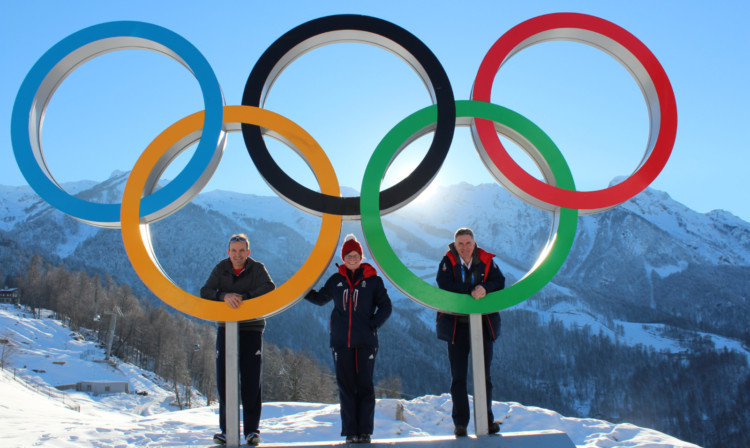An NHS Tayside doctor has returned home from leading the team of British medics at the Winter Olympics in Sochi.
As Team GB chief medical officer Dr Niall Elliott was at the heart of the action and spent most of the Games and the few weeks prior preparing in the mountain venues and athletes’ village.
The team, which included another doctor and seven physiotherapists, put in long days, typically starting at 6am and finishing at 11pm.
Dr Elliott said: “The location of the Games was spectacular with a newly built alpine resort, new sporting venues and a backdrop of the southern Caucus mountain range.
“The volunteers were enthusiastic and helpful, with a wide range of nationalities making up the games makers team.
“It was a great sporting occasion and a real honour to have worked and supported British sport at an historic Olympic Winter Games.
“We have a very motivated support team who were experienced, which gives the athletes confidence to perform to their best at the Games.”
Before the Olympics began Dr Elliott was out in Sochi preparing, ensuring athletes were injury and illness free.
This is a continuation from the normal support the athletes receive through the sportscotland Institute of Sport in Stirling, where he works part of the week as deputy head of sports medicine.
The work looks at illness prevention, health screening, injury management and preparing the athletes to compete at the highest level of their sport.
The University of Dundee graduate is also a sports and exercise medicine specialist, working in a multi-disciplinary musculoskeletal clinic at Dundee’s Kings Cross Hospital.
Once the Games had got under way the medical team was responsible for reviewing athletes in the Team GB medical centre at the start of each day, travelling with the teams to training sessions or being slopeside with the athletes as they competed.
A few of them needed immediate first aid, with a severe concussion and a hip injury among the worst injuries.
Dr Elliott said: “The medical support from the Sochi 2014 Organising Committee was fantastic and the athletes had access to MRI or CT scans for injuries as soon as they had happened. This made the difference in determining if an athlete was fit to continue training or competing or not.”
Brain injury as a result of concussion is a real risk and Dr Elliott had some tough decisions to take in Sochi, which resulted in stopping some athletes from taking part any further in the Games.
However, throughout the Games illness rates were lower than the expected 7-10% of the team a medical success.
